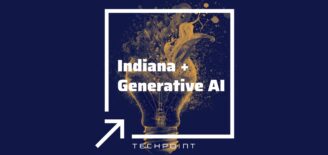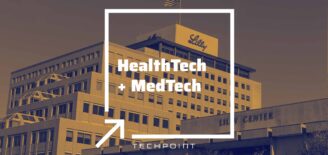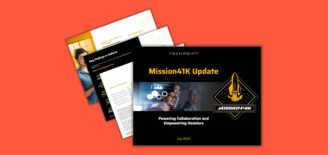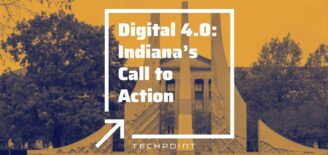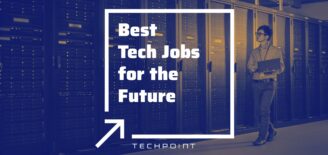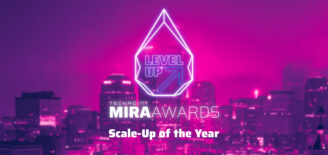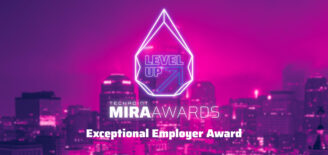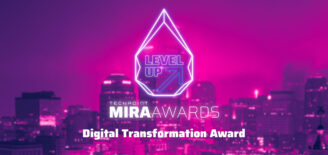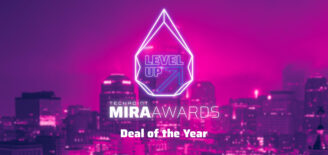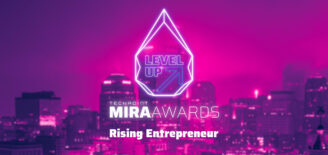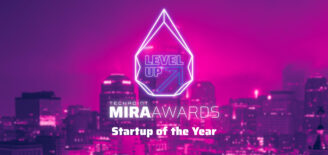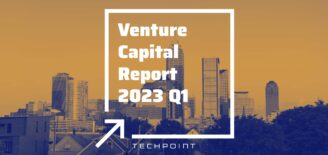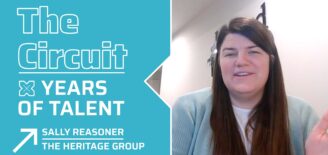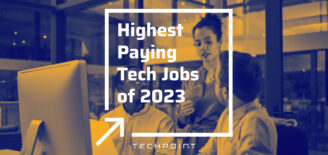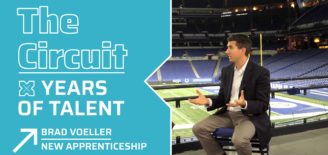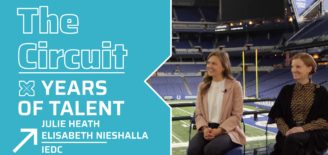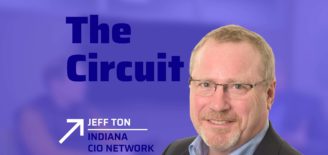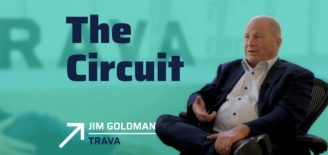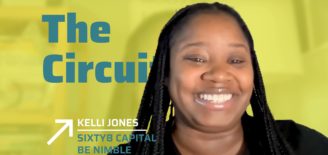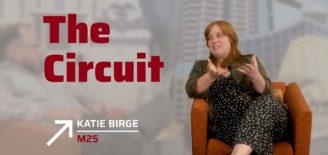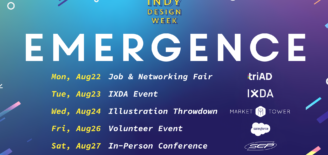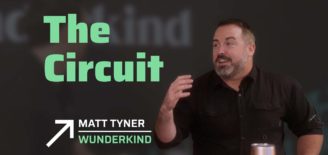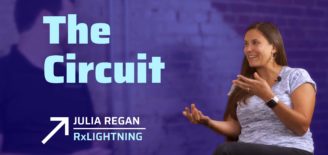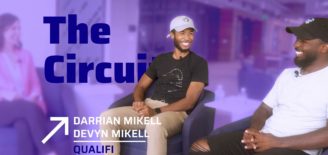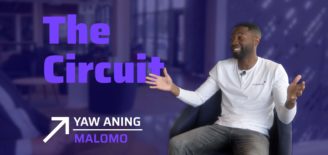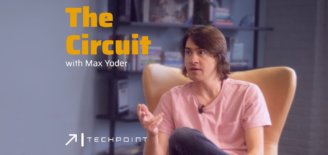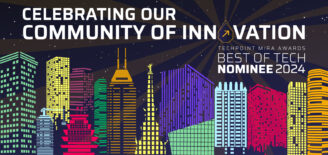What matters most to Gen Z in the workplace
Part two of a multi-part series in partnership with the Kronos Indianapolis Technology Center of Excellence and The Workforce Institute at Kronos Incorporated.
As workplace dynamics continue to change and evolve, it’s important for employers to evaluate and gather data about what matters most to their team. As Generation Z is the future of the workforce, knowing their present and future goals is critical to making decisions that will impact your organization in the long-term.
Earlier this year, we analyzed a series of reports produced by The Workforce Institute at Kronos Incorporated to share insights about Generation Z workers and how they engage in the workplace. More than 3,400 Gen Z workers across 12 countries were surveyed, sharing everything from how they feel about the gig economy to perceptions of themselves and what they need to be happy in the workplace.
After reviewing the data, we wanted the opportunity to speak directly to Gen Z workers at Kronos, learning even more first-hand about what they care about, what resonated with them in the reports, and what surprised them. Three Gen Zers—Marissa Klein, Solutions Consultant; Katherine (Kate) Kickham, Project Manager; and Roshn Marwah, Project Manager—took some time to meet with us to answer some questions about Gen Z and what they care about most.
Here’s what they shared.
Surprises and Contradictions: Hard Working with a Side of Flexibility
First, we wanted to know what surprised Marissa, Kate, and Roshn most about the reports. What did they find interesting? What stood out the most to them?
In the “Meet Gen Z” report, it was reported that 32% of Gen Zers believe they are the hardest-working generation. All three questioned this finding, noting this surprised them.
“I do think my peers and I know we work hard, but we’re also not plowing fields for 16 hours a day or currently on the front lines fighting a World War,” said Marissa, 23. “I did find it a little surprising that others or my peers might think that our generation works the hardest. I do think we work hard, but maybe not the hardest generation out there.”
For Kate, one of the things that stood out to her is how “contradictory” the Gen Z generation seems to be.
“After reading the reports, I realized we are a very contradictory generation where we believe in one thing, but we also believe in the traditions of our parents and past generations,” said Kate, 23. “For example, in the Gig in or Get Out report, it’s asking about Gen Z’s desire for stability, but also wanting flexibility.”
Roshn, 24, agreed with Kate’s assessment. “I think it’s a very interesting dichotomy for Gen Zers; they want schedule flexibility and want to be their own boss, but they also want the safety and security of a steady paycheck coming in.”
Meaning, Communication, Direction, and Culture are Key
What was clear in the reports and speaking with Marissa, Kate, and Roshn is Gen Z considers the work they do as important. Gen Z wants to affect change from day one. They’re more concerned with attaching meaning to the work they do and produce than maintaining a longstanding career with one company. They are willing to work however long it takes to get it done, but they also realize that work today is not the same as it was for baby boomers, Gen X, and millennials.
“I think previous generations were looking for a steady paycheck, perhaps ready to move into the conventional life of buying a house and starting up a family at an earlier age. Their path was focused on continuing to do that job effectively throughout a very long career,” said Roshn.
“Gen Zers, however, want to see career progressions and promotions at least once a year. I think that is part of the nature of wanting to be their own boss and wanting to affect things at a very large corporate scale. We want to feel like we’re really driving corporate missions or corporate initiatives that are affecting the group as a whole. For a manager—and I admit it, it’s tough for a manager—they have to provide this stability, while also allowing Gen Zers to see the big picture and have flexibility,” said Roshn.
“Gen Zers are really driven by people that motivate them. They’re not doing a job just to get paid; they’re doing a job because they want to love their job and we’re emotionally connected to our jobs and the networks that we create at our jobs,” said Kate. “If Gen Z isn’t motivated by their job anymore, they will go find another one so they can fall in love with their work all over again.”
Motivation is also important to Kate. “What matters to me is that I’m being constantly motivated and pushed to be innovative, but I’m also very driven by having a stable job and knowing that I’m walking into a job that isn’t going to go away anytime soon.”
That’s why, when hiring, companies need to understand that pigeon-holing or siloing Gen Zers is about the worst thing they can do. Gen Z wants to come in, do their job well, develop relationships, and find room to grow. They aren’t lateral thinkers; they are multi-dimensional thinkers who have more to offer than one specific role. This goes hand-in-hand with the trust and autonomy Gen Zers crave.
“What I found interesting about the reports is that it states that we’re worried about things like networking and negotiating, but not about hitting deadlines and producing the work,” said Roshn. “When it comes down to it, I think you just want to work for an organization that trusts you, in that respect. If you are micromanaged and not given autonomy over your own work, then it can feel like you’re not being trusted by the organization that you’re spending your whole day or the majority of your week with.”
In addition to not feeling siloed or micromanaged, Gen Z are communicators! They desire, need, and definitely rely on feedback and direction. They are seeking out work cultures where communication is open and given freely. They crave autonomy, but also have the expectation they will be given all of the tools and assistance they need, when they need it. You also have to be clear about how Gen Zers will be contributing.
“I think what Gen Z really wants to know during the interview process is what they will be doing on a day-to-day basis,” said Roshn. “Forget the generic job descriptions. What is the size of the team that I’ll be working with? Who am I working with? Do they fit my culture and personality? These are all things that I think Kronos does a really great job of sharing and, in turn, has attracted a lot of very high-quality talent to our organization.”
All three noted that Kronos—which, after merging earlier this year with leading human capital management solutions provider Ultimate Software, will soon be known as UKG (Ultimate Kronos Group)—does a very good job of providing the environment Gen Z seeks. “At Kronos, we went through a nine-week training program to really finalize how we integrate ourselves into our company. We also have weekly one-on-ones with our managers and set goals every six months to a year,” said Kate. “We are always encouraged to ask for feedback, then our managers ask how they are doing as well. Coaching is really encouraged, along with training and mentorship and I think that’s extremely important for Gen Z.”
“Going back to the interview process, it was clear to me how much the employees at Kronos really seemed to enjoy being together in the office. Everyone was smiling and so welcoming, and I immediately felt right at home,” said Marissa. “From the very get go, I just knew this company really cares about their employees.”
Along with communication, extensive training is expected so they feel secure in knowing they are set up for success. Gen Zers aren’t ready to be thrown to the wolves; they want to understand completely what the expectation is and how they can reach their goals. This furthers the idea that they are valued and not just producing. Finding validation through their work is as important as the training itself.
Work culture is a huge driving factor for all three Kronites we interviewed. Finding the right fit is more important than benefits. Work culture emphasis helps connect meaning to the work around them.
“I look at work as another place to form not only professional relationships, but friendships and people I’m going to surround myself with for most of the day. Why wouldn’t I look for a company that promotes a great culture and provides support for mental, physical, and emotional health? You are spending eight to 10 hours a day in an office with people you wouldn’t necessarily call family, but why would you waste the time on not considering developing personal relationships with them?” said Kate.
“I think something that was really important to me when I was looking for a job and also for many of my friends, was looking for a place that has a collaborative and team culture,” said Marissa. “I grew up playing sports all through college and a lot of people are involved with band or with drama, so you’re just a part of something bigger than yourself. That’s important at a job as well.”
This also translates into workspace design. “If you are going to require people to come into the office, creating an environment that’s collaborative is critical,” said Kate. “I think people, especially Gen Zers, get very turned off by cubicles, where you’re in your own space and you’re not encouraged to work with one another.”
“What’s incredible about Kronos is I really feel like I’m working for a company that is a part of something bigger than just me or just my team,” said Marissa. “There’s thousands of us in this together. I have really enjoyed being a part of Kronos and the team culture.”
Perks and Benefits Matter for Gen Z
You’ve likely seen some companies promote that they have ping pong tables and beer on tap. While it might not matter to some of the older generations, perks and benefits alike can matter to Gen Z.
All three interviewees mentioned a specific perk that matters to them is keeping them well supplied with snacks and drinks.
“In all honesty, I think free snacks are a big perk,” said Roshn. “Sleeping pods are good, too.” Marissa and Kate wholeheartedly agreed.
Salary and benefits are definitely important to Gen Z as well. “Money absolutely matters. Nobody’s going to work for free. In the tech industry, salaries are extremely competitive, especially for folks who are very specialized in what they’re doing,” said Roshn.
“Kronos does a fantastic job of really keeping employees top of mind and they have managers that check in on us to see how we’re doing,” said Roshn. “If people have a manager that they trust and believe in, that is why they take a job and stay.”
Before graduating from college, Marissa believed that she had to find a well-paying job to feel rewarded. However, her professors encouraged her to think beyond money. “My professors would always tell me that you have to look for so much more than just a paycheck. They gave me a list of things I should look for in a company. At first, I didn’t really believe them and thought, ‘no, I want to make money. The whole point is to pay back my loans, right?’ But now, after being in the workplace and seeing what it’s like, I feel so blessed to have the salary I have and go to work for a company like Kronos. I see now that salary definitely isn’t everything. Enjoying work is important,” said Kate.
“Every little benefit counts. From unlimited PTO to snacks to having a great manager, providing benefits shows us how much we’re valued by the company and makes us feel trusted,” said Kate.
Benefits and perks might look different in the future, though, becoming more personalized to individual workers.. “I think as we shift to a more people-focused environment, we will get more granularly focused on what each employee wants,” said Roshn. “Because what each individual wants is going to be so rapidly different, to some it may look like having your cake and eating it, too. And to some it may look like a functional work-life that we want.”
At the end of the day, Gen Z wants the whole package when it comes to work. They want employers to provide a great culture, great salary and benefits, perks, communication, training, and support. They want to create a work-life balance that has the stability of a paycheck with the flexibility of a freelance gig.
What’s Next? Everyone is different but these insights help provide some important and interesting revelations about Gen Z and how to engage them, Share these insights with your hiring managers and discuss what you found interesting. Have a conversation about how you’ll attract and retain Gen Z talent.



